50 years following its founding, today’s Department of Public Health Sciences at UConn School of Medicine is still growing strong while remaining true to its basic science roots.
The Department was founded five decades ago by one of the UConn School of Medicine’s first faculty founders Dr. James E. C. Walker and until a few years ago bared the longstanding name of Community Medicine and Health Care.
Today, Public Health Sciences’ 25 full- and part-time multidisciplinary faculty, along with many other contributing faculty and staff, are led by Doug Brugge, Ph.D., M.S., the Health Net, Inc. Chair in Community Medicine and Public Health. Brugge is new to UConn Health, as he was recruited in March 2019 from Tufts University School of Medicine. He conducts continuously NIH-funded occupational and environmental health research with a primary focus on traffic-related air pollution.
Together the Department’s chair and faculty host the largest portfolio of population and public health research projects at the School of Medicine. Their wide spanning research cuts across cancer epidemiology, substance use disorders, health services research, occupational and environmental health, health law and ethics, health behavior, public health dentistry, HIV/AIDS, and global health.
Throughout its time, the Department has achieved significant impact on public policy through its collaborative work with State of Connecticut agencies and community-based health and service agencies. Plus, the faculty of the Department annually educate over 100 future public health leaders through their Program in Applied Public Health Sciences offering MPH and Ph.D. graduate degrees along with other collaborative dual degrees and certificate trainings.
Recently, several longtime faculty members have retired following illustrious careers including Thomas Babor, Ph.D., MPH, Stephen Schensul, Ph.D., Judy Lewis, M.Phil., Bonnie McRee, Ph.D., MPH, and Joseph A. Burleson, Ph.D. Additionally, sadly the Department lost both Howard Bailit, DMD, Ph.D., who passed away in 2018 and Richard G. Stevens, Ph.D. in 2019.
In 2019-2021 seven new faculty recruits joined the Department of Public Health Sciences:
Kristin Guertin, Ph.D., MPH, is a new assistant professor in the Department joining from the University of 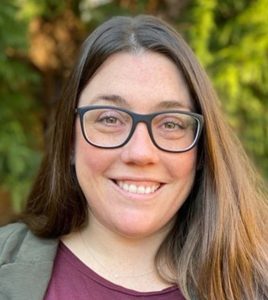 Virginia School of Medicine where she served as assistant professor in its Department of Public Health Sciences. She previously completed a postdoctoral fellowship with the National Cancer Institute. Guertin is a chronic disease epidemiologist with expertise in modifiable lifestyle factors, such as nutrition, in relation to disease risk and survival. Her current research focuses on cancer and type 1 diabetes.
Virginia School of Medicine where she served as assistant professor in its Department of Public Health Sciences. She previously completed a postdoctoral fellowship with the National Cancer Institute. Guertin is a chronic disease epidemiologist with expertise in modifiable lifestyle factors, such as nutrition, in relation to disease risk and survival. Her current research focuses on cancer and type 1 diabetes.
Bing Lu, MD, DrPH, is a new professor with tenure who was recruited from the Department of Medicine of 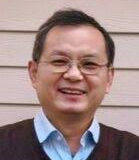 Brigham and Women’s Hospital and Harvard Medical School where he served as the director of biostatistics for the Section of Clinical Sciences, and an associate professor of medicine at Harvard. He also previously worked at Brown University. His research expertise is design and analysis of clinical trials and observational studies, epidemiology and outcomes research in chronic diseases including rheumatic diseases, osteoarthritis, and cardiovascular diseases. He brings with him two active NIH RO1 grants.
Brigham and Women’s Hospital and Harvard Medical School where he served as the director of biostatistics for the Section of Clinical Sciences, and an associate professor of medicine at Harvard. He also previously worked at Brown University. His research expertise is design and analysis of clinical trials and observational studies, epidemiology and outcomes research in chronic diseases including rheumatic diseases, osteoarthritis, and cardiovascular diseases. He brings with him two active NIH RO1 grants.
Misti Levy Zamora, Ph.D., is a new assistant professor. She was recruited from Johns Hopkins Bloomberg School 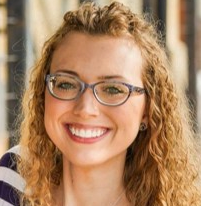 of Public Health and previously worked as a postdoctoral researcher as well at Texas A&M University. Her expertise is in environmental health and engineering especially in air pollution. She investigates how modifiable factors, such as commute mode, exercise habits, or home address, can influence personal exposures to ambient and indoor pollutants and the severity of subsequent health effects. Her research is supported by National Institute of Environmental Health Sciences (NIEHS) K99-R00 grant funding.
of Public Health and previously worked as a postdoctoral researcher as well at Texas A&M University. Her expertise is in environmental health and engineering especially in air pollution. She investigates how modifiable factors, such as commute mode, exercise habits, or home address, can influence personal exposures to ambient and indoor pollutants and the severity of subsequent health effects. Her research is supported by National Institute of Environmental Health Sciences (NIEHS) K99-R00 grant funding.
Shayna Cunningham, Ph.D., MHS, recruited in 2020, is another new assistant professor of public health 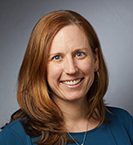 sciences. She trained at Johns Hopkins Bloomberg School of Public Health and came to UConn Health from Yale University. Prior work experiences also include serving as a Senior Research Associate at Sociometrics Corporation and a Program Officer for the Global Development and Population program at the William and Flora Hewlett Foundation. Her expertise is in maternal and child health, along with community-based participatory research.
sciences. She trained at Johns Hopkins Bloomberg School of Public Health and came to UConn Health from Yale University. Prior work experiences also include serving as a Senior Research Associate at Sociometrics Corporation and a Program Officer for the Global Development and Population program at the William and Flora Hewlett Foundation. Her expertise is in maternal and child health, along with community-based participatory research.
Amy Hunter, Ph.D., MPH, recruited in 2020, is an assistant professor of public health sciences with a joint 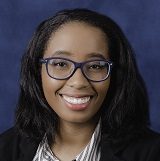 appointment in pediatrics. Hunter received her training at West Virginia University. She came to the Department from the Injury Prevention Center at Connecticut Children’s with whom she continues to collaborate. Her research focuses on injury epidemiology, child maltreatment, and pediatric firearm prevention. She recently received an R03 grant from the NIH (NICHD).
appointment in pediatrics. Hunter received her training at West Virginia University. She came to the Department from the Injury Prevention Center at Connecticut Children’s with whom she continues to collaborate. Her research focuses on injury epidemiology, child maltreatment, and pediatric firearm prevention. She recently received an R03 grant from the NIH (NICHD).
Megan O’Grady, Ph.D., recruited in 2020 from New York City’s Center on Addiction, serves as an 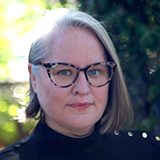 assistant professor of public health sciences. From 2009-2011 she was a postdoctoral research fellow in the UConn School of Medicine’s prestigious Alcohol Research Center. She specializes in addiction health services research, implementation science, integrated care models, technology for substance use intervention and treatment, plus social-contextual factors related to drinking alcohol. Several of her studies are NIH-funded (National Institute on Drug Abuse; National Institute on Alcohol Abuse and Alcoholism).
assistant professor of public health sciences. From 2009-2011 she was a postdoctoral research fellow in the UConn School of Medicine’s prestigious Alcohol Research Center. She specializes in addiction health services research, implementation science, integrated care models, technology for substance use intervention and treatment, plus social-contextual factors related to drinking alcohol. Several of her studies are NIH-funded (National Institute on Drug Abuse; National Institute on Alcohol Abuse and Alcoholism).
Greg Rhee, Ph.D., recruited in 2019, is also an assistant professor. He is a psychiatric epidemiologist and mental 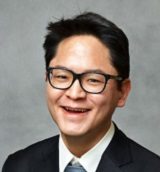 health services researcher studying the access to care, quality of care, and clinical and patient-reported outcomes in patients with psychiatric or substance use disorders by analysis of large data sets. He was recently funded for his first R21 grant.
health services researcher studying the access to care, quality of care, and clinical and patient-reported outcomes in patients with psychiatric or substance use disorders by analysis of large data sets. He was recently funded for his first R21 grant.
“This is a generational change for the Department,” observed Brugge, chair of the Department of Public Health Sciences. “It is exciting and challenging at the same time to manage such a rapid transition. But the senior, retiring faculty have stayed engaged and played a wonderful role mentoring and helping our new faculty get started.”



